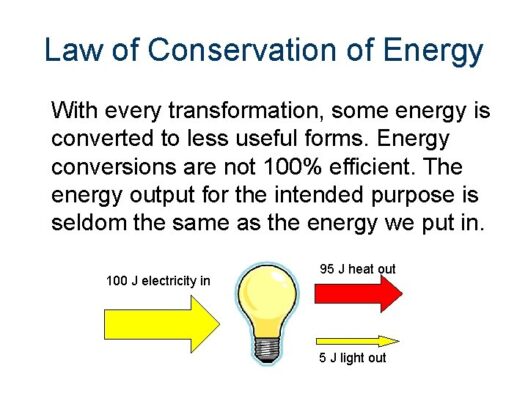In an era where climate change is a pressing global dilemma, conserving gas energy has emerged as an imperative responsibility for each individual. The substantial reliance on fossil fuels has noteworthy implications for both the environment and our pocketbooks. Transcending the commonplace approach is essential as we delve into effective strategies for conserving gas energy in both homes and vehicles.
First and foremost, understanding how gas energy consumption manifests in daily life is crucial. Households are significant contributors to gas emissions, with heating, cooking, and water heating being primary culprits. The average American home consumes a considerable amount of energy, predominantly gas. This cavalcade of consumption prompts us to ask: how can we leverage our daily habits to mitigate this impact? Here are several avenues worth exploring.
Home Energy Conservation Strategies
1. Upgrade to Energy-Efficient Appliances: One of the most impactful measures is to invest in Energy Star certified appliances, which are designed to consume less energy while providing the same performance level. Energy-efficient models use advanced technology to reduce gas consumption significantly.
2. Proper Insulation and Sealing: Maintaining an adequately insulated home is paramount. Inspecting windows and doors for air leaks can reveal subtle but significant losses in heating efficiency. Applying weather stripping or caulk around these areas can help create a more thermally efficient sanctuary.
3. Utilize Programmable Thermostats: The advent of programmable or smart thermostats has revolutionized energy conservation. These devices can adjust the heating schedule based on your daily routine, minimizing the amount of time heating systems are active when not needed. The result is a marked decrease in gas consumption.
4. Maintain Your Heating System: Regular maintenance of your heating system ensures it operates at peak efficiency. Filter changes, system inspections, and proper ductwork sealing can prevent excess gas use, extending the life of your system while curtailing wastage.
Cooking Considerations
Cooking is another area ripe for gas energy conservation. Small changes can yield substantial savings. For instance, utilizing the right-sized burner when cooking can greatly increase the efficiency of heat distribution. It’s also beneficial to cover pots while cooking to expedite heating times and reduce energy use. Furthermore, consider using a microwave for reheating, which is often more efficient than using a gas stove.
The Role of Behavioral Changes
Adopting energy-conscious habits can further cement gas conservation efforts. Being mindful of your energy use is critical. For example, turning down the thermostat a few degrees in winter or reducing the water heater temperature can lead to significant reductions in gas consumption. Additionally, engaging family members in energy-saving discussions fosters a collective approach to conservation, enhancing the overall impact.
Conserving Gas Energy in Vehicles
While home energy conservation is vital, the transportation sector poses another significant challenge. Vehicles are often perceived as gas guzzlers, but several strategies can minimize fuel consumption and thereby decrease the reliance on gas.
1. Regular Maintenance Checks: An efficiently running engine consumes less fuel. Regular inspections, including checking tire pressure and replacing air filters, can optimize your vehicle’s performance and enhance its energy efficiency. Even minor adjustments can lead to notable fuel savings.
2. Adopt Eco-Friendly Driving Habits: Modifying driving behaviors can produce profound effects. Accelerating gradually and adhering to speed limits can enhance fuel economy. Frequent stops and starts consume more fuel; thus, maintaining a steady speed is beneficial. Coasting to a stop instead of braking sharply can also contribute to lower gas consumption.
3. Carpooling and Public Transport: Sharing rides reduces the total number of vehicles on the road, inherently decreasing gas consumption. Utilizing public transport not only conserves energy but also alleviates traffic congestion, exemplifying a shift in perspective toward community wellbeing and sustainability.
4. Consider Alternative Fuel Options: Exploring options beyond gasoline can be a pivotal shift. Hybrid and electric vehicles are becoming increasingly accessible and can dramatically reduce dependence on fossil fuels. Their integration into daily life requires a reevaluation of travel norms.
A Call to Action
As evident, the endeavor to conserve gas energy is not merely an abstract ideal; it is a tangible responsibility that demands proactive engagement. The intersection of home energy management and transport efficiency presents ample opportunities for profound impact. By implementing these strategies, individuals can become catalysts for change, contributing to a collective movement toward sustainability.
Every choice we make reverberates through the environment, impacting our planet. The cumulative effect of conscientious decisions can create a ripple effect that extends well beyond individual homes and vehicles. It is incumbent upon each of us to action this imperative; the time is not merely ripe but imperative for embracing these transformative practices. Imagine a world with cleaner air, greater sustainability, and enhanced livability — it is within reach, one gas conservation effort at a time.
In conclusion, the pathways to conserving gas energy are multifaceted yet all interconnected. As we traverse this journey together, let curiosity fuel your commitment to innovation and sustainability. Small, consistent shifts in perspective and behavior can illuminate a path forward, heralding a brighter future for generations to come.








